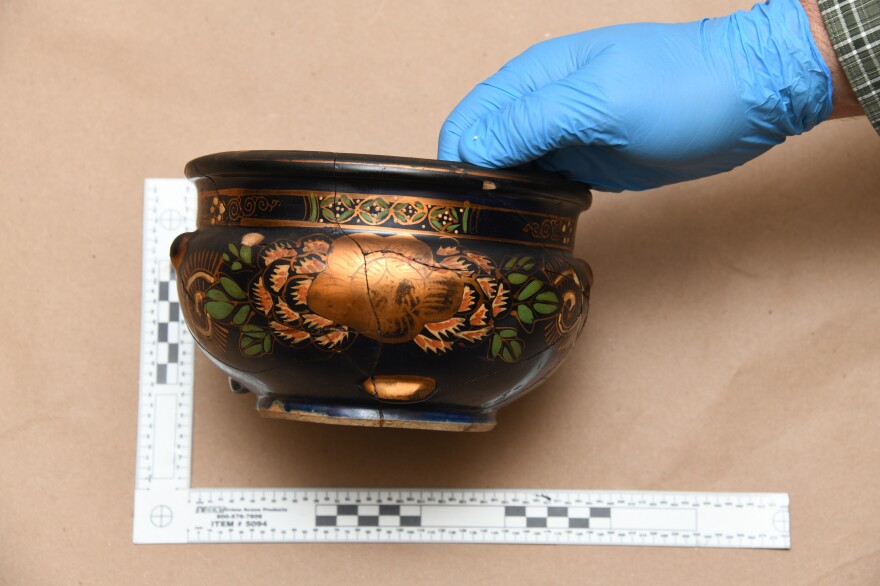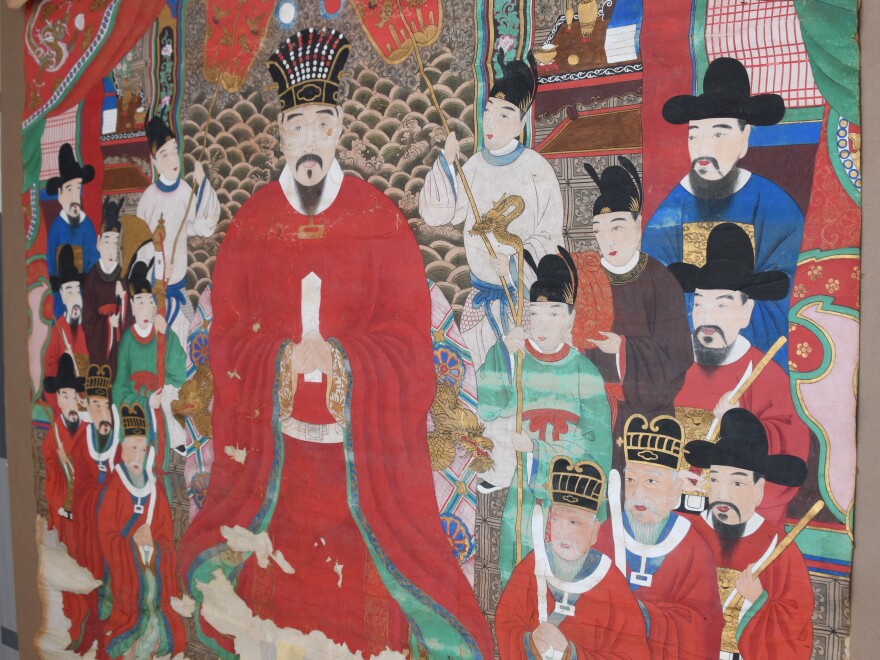Tucked away in the attic of a Massachusetts home was not one, not two — but 22 pieces of stolen Japanese antiques, including a hand-drawn map, ceramics and portraits of Okinawan kings, some dating back as far as the 1700s.
The items were found last year inside the residence of a World War II veteran, whose children were sorting through his belongings after he passed away, according to the FBI.
The family later alerted the authorities. On Friday, the FBI announced that the artifacts made their way to Japan. The family wished to remain anonymous, the FBI said.
The returned artifacts include six portraits, a hand-drawn map of Okinawa, and several ceramic pieces. Most of the pieces date back to the 18th and 19th centuries.

"This is what makes a culture. And without it, you're taking away their history," Geoffrey Kelly, a FBI special agent based in Boston who worked on the case, said in a statement.
"So, it's really important for us as stewards of artifacts and cultural patrimony to make every effort that we can to see that these go back to the civilizations and the cultures in the countries where they belong," he added.
Japan plans to hold a formal repatriation ceremony for the artifacts on Friday.
"It is very meaningful that the FBI, along with others in the U.S. Government, have cooperated to realize this return," the governor of Okinawa Prefecture, Denny Tamaki, said Friday, according to an FBI press release.

The Smithsonian Institution's National Museum of Asian Art in Washington, D.C., also helped ensure the items were properly packaged to be sent to Japan.
According to the FBI, the objects took the family by surprise, especially because their father had never served in the Pacific Theater.
So, they did some research and discovered that some of the items in their father's possession had been entered into the FBI's National Stolen Art File about 20 years ago.

The National Stolen Art File is a searchable database to help the public and law enforcement determine if an item was ever stolen.
In 1945, during the Battle of Okinawa in World War II, a trove of documents and treasures from the Ryukyu Kingdom were taken. The Ryukyu Kingdom reigned in Okinawa from 1429 to 1879.

In 2001, Japanese officials registered the missing items with the U.S. National Stolen Art File.
The FBI said that inside the Massachusetts home was an unsigned, typewritten letter stating that the items were collected in Okinawa during the last days of World War II.
Over 20,000 items have been recovered through the FBI Art Crime Program since it launched in 2004.
According to the National Stolen Art File, there are still several Okinawan antiques missing, including portraits and a royal crown.
Copyright 2024 NPR. To see more, visit https://www.npr.org.




